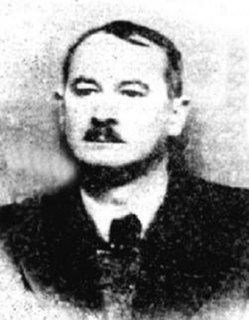 W
WFelix Aderca or F. Aderca, was a Romanian novelist, playwright, poet, journalist and critic, noted as a representative of rebellious modernism in the context of Romanian literature. As a member of the Sburătorul circle and close friend of its founder Eugen Lovinescu, Aderca promoted the ideas of literary innovation, cosmopolitanism and art for art's sake, reacting against the growth of traditionalist currents. His diverse works of fiction, noted as adaptations of Expressionist techniques over conventional narratives, range from psychological and biographical novels to pioneering fantasy and science fiction writings, and also include a sizable contribution to erotic literature.
 W
WTudor Arghezi was a Romanian writer, best known for his unique contribution to poetry and children's literature. Born Ion N. Theodorescu in Bucharest, he explained that his pen name was related to Argesis, the Latin name for the Argeș River.
 W
WAnton Costache Bacalbașa was a Romanian political journalist, humorist and politician, chiefly remembered for his antimilitaristic series Moș Teacă. Together with his brothers Ioan and Constantin, he entered public life as a republican and socialist militant. For a while, his career was intertwined with that of Marxist doyen Constantin Dobrogeanu-Gherea, who inspired in him the idea of a socialist art addressed to the masses. He was himself a popularizer of Marxist ideas, and one of the first Marxist intellectuals in Romanian political history.
 W
WȘtefan Aurel Baciu was a Romanian and Brazilian poet, novelist, publicist and academic who lived his later life in Hawaii. A precocious, award-winning, young author in interwar Romania, he was involved in editing several literary magazines. Attracted into left-wing democratic politics and the Social Democratic Party (PSDR), he camouflaged his views while working for the fascist press under dictatorial regimes, but returned in 1944 to manage the PSDR's Libertatea newspaper. Witnessing first-hand the gradual communist takeover, Baciu managed to have himself assigned to a diplomatic posting in Switzerland, and ultimately defected in 1948. A resident and then citizen of Brazil, and a traveler throughout Latin America, he wrote works in Portuguese, Spanish, English and German, as well as in his native Romanian.
 W
WAnatol E. Baconsky, also known as A. E. Bakonsky, Baconschi or Baconski, was a Romanian modernist poet, essayist, translator, novelist, publisher, literary and art critic. Praised for his late approach to poetry and prose, which transgresses the genres and introduces an aestheticized, original and progressively dark perspective to Romanian literature, he was also criticized for his early commitment to Socialist Realism and communism. Much of his work belongs to the field of travel literature, recording his experiences in the Eastern Bloc, the Far East and Soviet Union, and finally Central Europe. He was also a critically acclaimed translator of foreign works, including the Mahābhārata and poems by Jorge Semprún, Artur Lundkvist and others, the author of world literature anthologies, and the editor of monographs on Romanian and foreign painters.
 W
WAlexandru Bassarab, or Basarab, was a Romanian painter, engraver, and fascist politician. Earning his reputation for his pioneering work in linocut and woodcut, he explored neotraditionalism, Romanian nationalism, and Romanian folklore, and was ultimately drawn into politics with the Iron Guard. He helped steer several art groups associated or integrated with the Guard, contributed to its fascist propaganda, and briefly served in the Assembly of Deputies. He survived the clampdown of the late 1930s, returning to apolitical work with Grupul Grafic, and exploring the legacy of Byzantine art.
 W
WNicolae Constantin Batzaria, was a Macedonian-born Aromanian cultural activist, Ottoman statesman and Romanian writer. A schoolteacher and inspector of Aromanian education within Ottoman lands, he established his reputation as a journalist before 1908. During his thirties, he joined the clandestine revolutionary movement known as the Young Turks, serving as its liaison with Aromanian factions. The victorious Young Turk Revolution brought Batzaria to the forefront of Ottoman politics, ensuring him a seat in the Ottoman Senate, and he briefly served as Minister of Public Works under the Three Pashas. He was tasked with several diplomatic missions, including attending the London Conference of 1913, but, alerted by the Three Pashas' World War I alliances and the Young Turks' nationalism, he soon after quit the Ottoman political scene and left into voluntary exile.
 W
WConstantin Dumitru Beldie was a Romanian journalist, publicist, and civil servant, famous for his libertine lifestyle and his unapologetic, sarcastic, memoirs of life in the early 20th century. After modest but happy beginnings in life, Beldie played a small but essential part in the promotion of literary modernism, building bridges between the mainstream and the avant-garde. He became a pioneer of cultural journalism at Noua Revistă Română, before moving on to Ideea Europeană and ultimately Cuvântul, befriending philosopher-journalist Nae Ionescu. Like Ionescu, he promoted a vitalistic perspective on society and culture, veering into antiintellectualism after 1918.
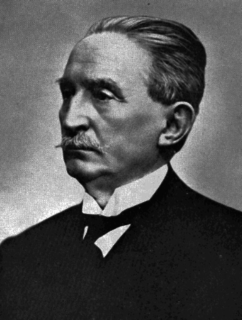 W
WIoan Bianu was an Imperial Austrian-born Romanian philologist and bibliographer. The son of a peasant family from Transylvania, he completed high school in Blaj, where he became a disciple of Timotei Cipariu and Ioan Micu Moldovan. As a youth, he espoused Romanian nationalism, and came into conflict with the Austro-Hungarian authorities, before finally emigrating to the Romanian Old Kingdom in 1876. There, he attended the University of Bucharest, later joining the faculty, where he taught Romanian literary history. He was affiliated with the Romanian Academy Library for over half a century, transforming the institution from the meager state in which he found it, and overseeing a five-fold increase of its collection. He helped author two important multi-volume works detailing early books and manuscripts from his country, and was a founder of library and information science in his adoptive country. Near the end of his life, struggling with deafness, Bianu withdrew from the Library in favor of his friend Radu R. Rosetti, but went on to serve as president of the Romanian Academy.
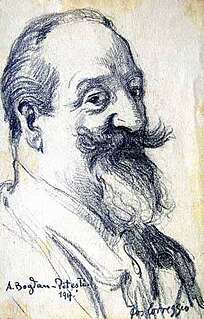 W
WAlexandru Bogdan-Pitești was a Romanian Symbolist poet, essayist, and art and literary critic, who was also known as a journalist and left-wing political agitator. A wealthy landowner, he invested his fortune in patronage and art collecting, becoming one of the main local promoters of modern art, and a sponsor of the Romanian Symbolist movement. Together with other Post-Impressionist and Symbolist cultural figures, Bogdan-Pitești established Societatea Ileana, which was one of the first Romanian associations dedicated to promoting the avant-garde and independent art. He was also noted for his friendship with the writers Joris-Karl Huysmans, Alexandru Macedonski, Tudor Arghezi and Mateiu Caragiale, as well as for sponsoring, among others, the painters Ștefan Luchian, Constantin Artachino and Nicolae Vermont. In addition to his literary and political activities, Alexandru Bogdan-Pitești was himself a painter and graphic artist.
 W
WH. Bonciu, or Horia Bonciu, was a Romanian novelist, poet, journalist and translator, noted especially as an atypical figure on his country's avant-garde scene. His work, comprising several volumes of poetry and two novels, is a mixture of influences from the diverse literary schools of Europe's modernism, and, unusually in the context of Romanian literature, borrows heavily from German-born movements such as Expressionism. The autofictional and cruel detail in Bonciu's narratives makes him a senior figure among Romania's own Trăirist authors, while its capture of the unnaturally grotesque also finds him as one of the country's Neoromantics and Surrealists.
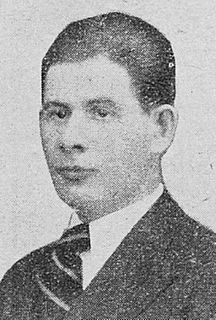 W
WIon Călugăru was a Romanian novelist, short story writer, journalist and critic. As a figure on Romania's modernist scene throughout the early interwar period, he was noted for combining a picturesque perspective on the rural Jewish-Romanian community, to which he belonged, with traditionalist and avant-garde elements. His early works, including the novel Copilăria unui netrebnic, bring together elements of Social Realism, Surrealism and Expressionism over a conventional narrative line based on oral tradition and the classics of Romanian literature. Călugăru, who moved from the moderate Contimporanul magazine to the Surrealist platform unu, was also one of the main contributors to Integral, a tribune for avant-garde literature in general. Although publicly known for his socialist convictions and his far left inclinations, he was, through his position at Cuvântul newspaper, present in the proximity of fascist circles, and had an ambiguous attitude toward his employer, the far right thinker Nae Ionescu.
 W
WIon Luca Caragiale was a Wallachian, later Romanian playwright, short story writer, poet, theater manager, political commentator and journalist. Leaving behind an important cultural legacy, he is considered one of the greatest playwrights in Romanian language and literature, as well as one of its most important writers and a leading representative of local humour. Alongside Mihai Eminescu, Ioan Slavici and Ion Creangă, he is seen as one of the main representatives of Junimea, an influential literary society with which he nonetheless parted during the second half of his life. His work, spanning four decades, covers the ground between Neoclassicism, Realism, and Naturalism, building on an original synthesis of foreign and local influences.
 W
WIeremia Teodor Cecan was a Bessarabian-born Romanian journalist, Bessarabian Orthodox priest, and far-right political figure. During the first part of his life, he was active in the Bessarabia Governorate of the Russian Empire, putting out the pioneering church magazine Nashe Obyedineniye. His opposition to Russification and his advocacy of social improvement led to a public scandal and then to is demotion by church officials, and pushed Cecan into independent journalism. However, his sympathies remained with the conservative-antisemitic Union of the Russian People, down to World War I.
 W
WȘerban Cioculescu was a Romanian literary critic, literary historian and columnist, who held teaching positions in Romanian literature at the University of Iași and the University of Bucharest, as well as membership of the Romanian Academy and chairmanship of its Library. Often described as one of the most representative Romanian critics of the interwar period, he took part in the cultural debates of the age, and, as a left-wing sympathizer who supported secularism, was involved in extended polemics with the traditionalist, far right and nationalist press venues. From early on in his career, Cioculescu was also noted for his selective approach to literary modernism and the avant-garde, preferring to place his cultural references with Neoclassicism.
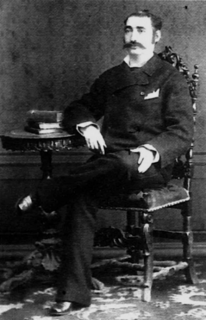 W
WMișu or Mihail Ion Văcărescu, most commonly known as Claymoor, was a Wallachian, later Romanian fashion journalist and gossip columnist, the son of poet Iancu Văcărescu. A retired cavalry officer in the Romanian Land Forces, he began writing in his late twenties or early thirties, reaching his fame as a contributor to the Francophone daily L'Indépendence Roumaine. He was widely respected for his verdicts on fashion, and, as an arbiter of taste, contributed to his paper's renown; however, people of his day also ridiculed him for his florid literary style, his political involvement with the Conservative Party, and his apparent homosexuality.
 W
WN. D. Cocea was a Romanian journalist, novelist, critic and left-wing political activist, known as a major but controversial figure in the field of political satire. The founder of many newspapers and magazines, including Viața Socială, Rampa, Facla and Chemarea, collaborating with writer friends such as Tudor Arghezi, Gala Galaction and Ion Vinea, he fostered and directed the development of early modernist literature in Romania. Cocea later made his name as a republican and anticlerical agitator, was arrested as an instigator during the 1907 peasant revolt, and played a leading role in regrouping the scattered socialist clubs. His allegiances however switched between parties: during World War I, he supported the Entente Powers and, as a personal witness of the October Revolution, the government of Soviet Russia, before returning home as a communist.
 W
WBonifaciu Florescu was a Romanian polygraph, the illegitimate son of writer-revolutionary Nicolae Bălcescu. Born secretly outside his parents' native Wallachia, at Pest, he was taken by his aristocratic mother in France, growing up as an erudite Francophone and Francophile. Florescu graduated from the Lycée Louis-le-Grand and the University of Rennes, returning home at age 25 to become a successful lecturer, polemicist, and historian of culture. Influenced by his father's politics, he was for a while a prominent figure on the far-left of Romanian liberalism and nationalism, which pitted him against the conservative society Junimea, and against his own conservative cousin, Prime Minister Ion Emanuel Florescu. The conflict led to his losing a professorship at Iași University and being sidelined when applying for chairs at the University of Bucharest. His critique of Junimist literature, structured around a classical defense of prosody, inspired a libel by Mihai Eminescu—famously depicting Florescu as a "homunculus".
 W
WBenjamin Fondane or Benjamin Fundoianu was a Romanian and French poet, critic and existentialist philosopher, also noted for his work in film and theater. Known from his Romanian youth as a Symbolist poet and columnist, he alternated Neoromantic and Expressionist themes with echoes from Tudor Arghezi, and dedicated several poetic cycles to the rural life of his native Moldavia. Fondane, who was of Jewish Romanian extraction and a nephew of Jewish intellectuals Elias and Moses Schwartzfeld, participated in both minority secular Jewish culture and mainstream Romanian culture. During and after World War I, he was active as a cultural critic, avant-garde promoter and, with his brother-in-law Armand Pascal, manager of the theatrical troupe Insula.
 W
WConstantin Gane was a Romanian novelist, amateur historian, biographer and memoirist. Born into the boyar aristocracy of Western Moldavia, he worked as a lawyer in Bucharest, achieving literary notoriety with his recollections from the Second Balkan War and the Romanian front of World War I. By the 1930s, he was primarily a writer on historical and genealogical topics, famous for his contribution to women's history. An apologist for Romanian conservatism and Junimism, Gane also completed in 1936 a biography of Petre P. Carp. He was editor at Convorbiri Literare and a columnist for Cuvântul, also putting out his own magazine, Sânziana.
 W
WTraian Herseni was a Romanian social scientist, journalist, and political figure. First noted as a favorite disciple of Dimitrie Gusti, he helped establish the Romanian school of rural sociology in the 1920s and early '30s, and took part in interdisciplinary study groups and field trips. A prolific essayist and researcher, he studied isolated human groups across the country, trying to define relations between sociology, ethnography, and cultural anthropology, with an underlying interest in sociological epistemology. He was particularly interested in the peasant cultures and pastoral society of the Făgăraș Mountains. Competing with Anton Golopenția for the role of Gusti's leading disciple, Herseni emerged as the winner in 1937; from 1932, he also held a teaching position at the University of Bucharest.
 W
WAdolf Edmund George de Herz, commonly shortened to A. de Herz, also rendered as Hertz and Herț, was a Romanian playwright and literary journalist, also active as a poet, short story author, and stage actor. He was the scion of an upper-class assimilated Jewish family, with its roots in Austria-Hungary. His grandfather, Adolf Sr, was a controversial banker and venture capitalist, while his father, Edgar von Herz, was noted as a translator of Romanian literature. Adolf had a privileged childhood and debuted as a poet while still in high school, producing the lyrics to a hit romance. In his early work for the stage, Herz was a traditionalist inspired by Alexandru Davila and the Sămănătorul school, but later veered toward neoclassical literature and aestheticism. His "salon comedies", staged by the National Theater Bucharest, borrowed from various authors, including Roberto Bracco, Henri Lavedan, and Haralamb Lecca, peaking in popularity in 1913, with Păianjenul. By the start of World War I, Herz was also a writer of revues.
 W
WConstantin Al. Ionescu-Caion was a Romanian journalist and poet, primarily remembered for his legal dispute with humorist Ion Luca Caragiale. He was a Symbolist, a disciple of Alexandru Macedonski, and a militant Francophile, as well as a leading opponent of literary tradition. His scattered work comprises essays, short stories and prose poetry, noted for their cultural references, but made little impact on Romanian literature. As a journalist, Caion prioritized scandals, accusing Caragiale of plagiarism and losing the subsequent celebrity trial of 1902, before partly recanting and winning the retrial. Despite his own coquetries with Romanian nationalism, Caion focused his verve on Transylvania's contemporary nationalist literary current.
 W
WAlexandru Ionescu was a Romanian typographer, early labour leader and socialist journalist. A founding member of Romanian Social Democratic Workers' Party (PSDMR), he was part of its leadership throughout its existence, at the same time working for the unionisation of the Romanian workers. One of the few party leaders with actual working-class background, Ionescu opposed collaboration with the bourgeois political parties, and continued to support the existence of a workers' party even after the other leaders of PDSMR decided on the party's dissolution. A founder, along fellow-minded socialists, of the Working-class Romania circle, Ionescu grew estranged from the main socialist grouping due to disagreements over the newly established labour legislation. Joining the government-sanctioned corporations, he supported at times ideas contradictory to his former socialist positions, but ultimately he rejected corporatism as a form of labour organisation. Despite some attempts at collaboration, he would never reintegrate in the mainstream socialist movement.
 W
WNicolae Iorga was a Romanian historian, politician, literary critic, memoirist, poet and playwright. Co-founder of the Democratic Nationalist Party (PND), he served as a member of Parliament, President of the Deputies' Assembly and Senate, cabinet minister and briefly (1931–32) as Prime Minister. A child prodigy, polymath and polyglot, Iorga produced an unusually large body of scholarly works, establishing his international reputation as a medievalist, Byzantinist, Latinist, Slavist, art historian and philosopher of history. Holding teaching positions at the University of Bucharest, the University of Paris and several other academic institutions, Iorga was founder of the International Congress of Byzantine Studies and the Institute of South-East European Studies (ISSEE). His activity also included the transformation of Vălenii de Munte town into a cultural and academic center.
 W
WConstantin Ritter von Isopescu-Grecul was an Austro-Hungarian-born Romanian jurist, politician, and journalist. He represented the region of Bukovina and a Romanian constituency in the Austrian House of Deputies continuously from 1907, participating in the political events of World War I. He was foremost known as a legal reformer and a political moderate, who objected to radical forms of Romanian nationalism and mainly sought to obtain a special status for the Romanians within a reformed Austria. His loyalism was rewarded by the Austrian authorities and antagonized the Romanian National People's Party, but Isopescu-Grecul also took distance from the pro-Austrian line advocated by Aurel Onciul. In 1908, Isopescu-Grecul joined Nicu Flondor and Teofil Simionovici in creating an Independent Party, which espoused a moderate program. He later rallied behind Iancu Flondor, embracing his conservative approach to national issues.
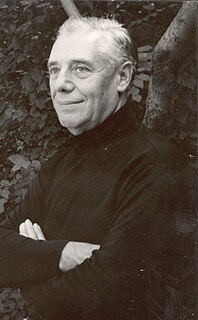 W
WGeorge Ivașcu was a Romanian journalist, literary critic, and communist militant. From beginnings as a University of Iași philologist and librarian, he was drawn into left-wing antifascist politics, while earning accolades as a newspaper editor and foreign-affairs journalist. Openly confronting the Iron Guard and fascism in general, he was persecuted and went into hiding during the first two years of World War II. He reemerged as a pseudonymous correspondent, then editorial secretary, of the magazine Vremea, slowly turning it away from fascism. In parallel, he also contributed to the clandestine left-wing press, preparing for an Allied victory.
 W
WMarcel Janco was a Romanian and Israeli visual artist, architect and art theorist. He was the co-inventor of Dadaism and a leading exponent of Constructivism in Eastern Europe. In the 1910s, he co-edited, with Ion Vinea and Tristan Tzara, the Romanian art magazine Simbolul. Janco was a practitioner of Art Nouveau, Futurism and Expressionism before contributing his painting and stage design to Tzara's literary Dadaism. He parted with Dada in 1919, when he and painter Hans Arp founded a Constructivist circle, Das Neue Leben.
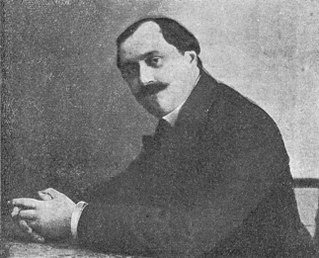 W
WDumitru or Dimitrie Karnabatt was a Romanian poet, art critic and political journalist, one of the minor representatives of Symbolism. He was a disciple of both Alexandru Macedonski and Ștefan Petică, representing the conservative and mystical school of Romanian Symbolism, and a regular contributor to the newspaper Seara. He is also remembered as the husband and, for a while, literary partner of novelist Lucrezzia Karnabatt.
 W
WBarbu Lăzăreanu was a Romanian literary historian, bibliographer, and left-wing activist. Of Romanian Jewish background, he became noted for both his social criticism and his lyrical pieces while still in high school, subsequently developing as a satirist and printing his own humorous magazine, Țivil-Cazon. Lăzăreanu's youthful sympathies veered toward the anarchist underground, prompting him to associate with Panait Mușoiu.
 W
WAlexandru Macedonski was a Romanian poet, novelist, dramatist and literary critic, known especially for having promoted French Symbolism in his native country, and for leading the Romanian Symbolist movement during its early decades. A forerunner of local modernist literature, he is the first local author to have used free verse, and claimed by some to have been the first in modern European literature. Within the framework of Romanian literature, Macedonski is seen by critics as second only to national poet Mihai Eminescu; as leader of a cosmopolitan and aestheticist trend formed around his Literatorul journal, he was diametrically opposed to the inward-looking traditionalism of Eminescu and his school.
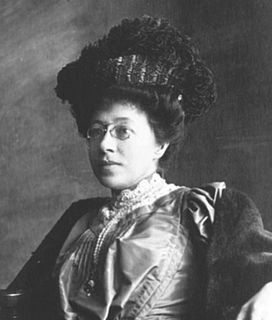 W
WMărgărita Miller-Verghy was a Romanian socialite and author, also known as a schoolteacher, journalist, critic and translator. A cultural animator, she hosted a literary club of Germanophile tendencies during the early part of World War I, and was later involved with Adela Xenopol in setting up feminist cultural venues. Her main contributions to Romanian literature include translations from English literature, a history of feminine writing in the national context, a novella series and an influential work of detective fiction. Many of her other works have been described as mediocre and didactic.
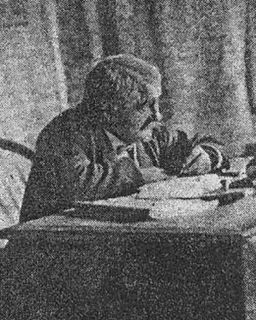 W
WDumitru Constantin Moruzi was a Moldavian-born Imperial Russian and Romanian aristocrat, civil servant and writer. A scion of the prestigious Mourousis and Sturdza families, he was the son of adventurer Constantin D. Moruzi, who had switched his allegiance between Moldavia, Russia, and the United Principalities. Dumitru's uncle was Alexandru "Alecu" Moruzi, who briefly led the Moldavian government, while his stepsister Natalia Keșco-Moruzi was for a while queen of Serbia. Dumitru was also the maternal uncle of historian Gheorghe I. Brătianu.
 W
WAlexis Nour was a Bessarabian-born Romanian journalist, activist and essayist, known for his advocacy of Romanian-Bessarabian union and his critique of the Russian Empire, but also for controversial political dealings. Oscillating between socialism and Russian nationalism, he was noted as founder of Viața Basarabiei gazette. Eventually affiliated with Romania's left-wing form of cultural nationalism, or Poporanism, Nour was a long-term correspondent of the Poporanist review Viața Românească. Publicizing his conflict with the Russian authorities, he settled in the Kingdom of Romania, where he openly rallied with the Viața Românească group.
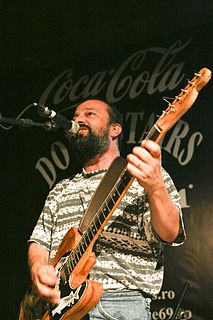 W
WIoan Gyuri Pascu was a Romanian pop music singer, producer, actor and comedian, also known for his participation in the comedy troupe Divertis and for his activity in Romanian cinema and television. Moving between rock music, rhythm and blues, reggae and jazz, the multi-instrumentalist Pascu founded a number of bands and registered success particularly during the early 1990s, when he was the lead singer of a group known as The Blue Workers. Pascu was the manager of several alternative music acts with his label Tempo Music, and remains an outspoken critic of Romanian commercial radio.
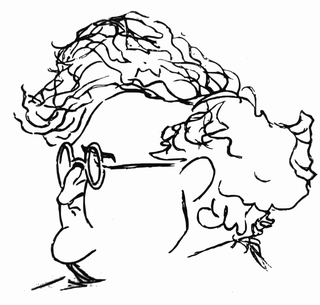 W
WPerpessicius was a Romanian literary historian and critic, poet, essayist and fiction writer. One of the prominent literary chroniclers of the Romanian interwar, he stood apart in his generation for having thrown his support behind the modernist and avant-garde currents of Romanian literature. As a theorist, Perpessicius merged the tenets of Symbolism with the pragmatic conservative principles of the 19th century Junimea society, but was much-criticized over perceptions that, in the name of aesthetic relativism, he tolerated literary failure. Also known as an anthologist, biographer, museologist, folklorist and book publisher, he was, together with George Călinescu, one of his generation's best-known researchers to have focused on the work of Junimist author and since-acknowledged national poet Mihai Eminescu. Much of Perpessicius' career was dedicated to collecting, structuring and interpreting Eminescu's texts, resulting in an authoritative edition of Eminescu's writings, the 17-volume Opere ("Works").
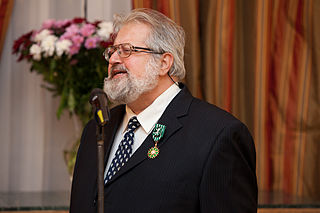 W
WAndrei-Nicolae Pippidi is a Romanian historian and Professor Emeritus at the University of Bucharest, specialised in South-Eastern European history of the 15th–19th century, in Romanian history of the Middle Ages and the Early Modern Period, and in the relationship between South-Eastern Europe and the Occident.
 W
WCristian Tudor Popescu is a Romanian journalist, essayist, short-story writer and political commentator. Author of science fiction stories during his youth, he also hosted talk shows for various television stations, and had contributions as a literary critic and translator.
 W
WMihai Dumitru Ralea was a Romanian social scientist, cultural journalist, and political figure. He debuted as an affiliate of Poporanism, the left-wing agrarian movement, which he infused with influences from corporatism and Marxism. A distinguished product of French academia, Ralea rejected traditionalism and welcomed cultural modernization, outlining the program for a secular and democratic "peasant state". His ideology blended into his scholarly work, with noted contributions to political sociology, the sociology of culture, and social and national psychology. He was a professor at the University of Iași and, from 1938, the University of Bucharest.
 W
WGeorge or Gheorghe Ranetti, born George Ranete, was a Romanian poet, journalist and playwright, known as the founder and editor of Furnica magazine. A professional journalist from the late 1890s, he alternated between political dailies and literary reviews, being sympathetic to Romanian nationalism and traditionalism, and working under Ion Luca Caragiale at Moftul Român. By 1904–1906, he was active on the margin of left-wing traditionalism, or Poporanism, showing himself sympathetic to republican or generically anti-elitist ideologies. Such views and influences seeped into his activity at Furnica, which was for decades a prominent institution in Romanian humor.
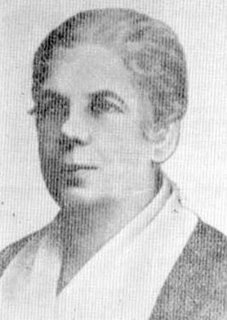 W
WIzabela Sadoveanu-Evan was a Romanian literary critic, educationist, opinion journalist, poet and feminist militant. She spent her youth advocating socialism, and rallied with left-wing politics for the remainder of her life, primarily as a representative of Poporanist circles and personal friend of culture critic Garabet Ibrăileanu. Under Ibrăileanu's guidance, Sadoveanu wrote for Viața Românească review, where she tried to reconcile ethnic nationalism and traditionalism with aestheticism. As literary critic, she championed the recognition of Symbolism as an independent cultural phenomenon, and reviewed modern developments in English literature.
 W
WHenric Sanielevici was a Romanian journalist and literary critic, also remembered for his work in anthropology, ethnography, sociology and zoology. Initially a militant socialist from the political-philosophical circle of Constantin Dobrogeanu-Gherea, he incorporated other influences and, in 1905, created his own literary review, Curentul Nou. Sanielevici and his friend Garabet Ibrăileanu were among the founders of "Poporanism", a peasant-oriented and left-wing movement. However, Sanielevici soon detached himself from both Marxism and agrarianism, criticizing Romanian traditionalist literature, and prophesying a Neoclassicism for the working men. His heated polemic with the rival school of Sămănătorul journal isolated him from the other Poporanists, whom he eventually denounced as "reactionaries". More controversy surrounded his ambiguous attitudes during World War I.
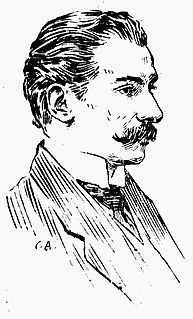 W
WAl. T. Stamatiad was a Romanian Symbolist poet, short story writer, and dramatist. A late arrival on the local Symbolist scene, he was primarily active as a literary promoter and, in 1918, editor of Literatorul review. Discovered and praised by Alexandru Macedonski and Ion Minulescu, he combined his presence in radical Symbolist circles with stints on more culturally conservative ones, crossing between the extremes of Romanian literature. By 1911, he had established himself in cultural and social circles as an exotic and vocal, sometimes violent, cultural debater.
 W
WAvram Steuerman-Rodion, born Adolf Steuerman or Steuermann and often referred to as just Rodion, was a Romanian poet, anthologist, physician and socialist journalist. A member of Romania's Jewish community, he was a lifelong militant for Jewish emancipation and assimilation, noted for poems which attack the prevailing antisemitism of his day. For a while, he was active as a propagandist of Hovevei Zion ideas among local Jews.
 W
WPăstorel Teodoreanu, or just Păstorel, was a Romanian humorist, poet and gastronome, the brother of novelist Ionel Teodoreanu and brother in law of writer Ștefana Velisar Teodoreanu. He worked in many genres, but is best remembered for his parody texts and his epigrams, and less so for his Symbolist verse. His roots planted in the regional culture of Western Moldavia, which became his main source of literary inspiration, Păstorel was at once an opinionated columnist, famous wine-drinking bohemian, and decorated war hero. He worked with the influential literary magazines of the 1920s, moving between Gândirea and Viața Românească, and cultivated complex relationships with literary opinion-makers such as George Călinescu.
 W
WDem. Theodorescu was a Romanian journalist, humorist, and critic, remembered for his social-themed novels but also for his controversial political stances. A committed opponent of the National Liberal Party establishment, Theodorescu frequented the avant-garde and socialist circles. During World War I, he transformed himself into a supporter of the Central Powers, and lived the occupation of Romania as a collaborationist. Like his friend Tudor Arghezi, he was imprisoned on a verdict of treason, but pardoned in December 1920.
 W
WDumitru Tinu was a Romanian journalist, director of Adevărul newspaper and president of the Romanian Press Club. He died under questionable circumstances in the early hours of New Year's Day 2003 in a car crash that aroused a number of theories in the media. His son from a previous relationship, Andrei Tinu, is a politician.
 W
WNicolae Tonitza was a Romanian painter, engraver, lithographer, journalist and art critic. Drawing inspiration from Post-impressionism and Expressionism, he had a major role in introducing modernist guidelines to local art.
 W
WSandu Tudor was a Romanian poet, journalist, theologian and Orthodox monk. Having had an adventurous youth, he first became known in the late 1920s, when he contributed to the modern Orthodox revival, rallying with the journal Gândirea. Although a traditionalist and a critic of materialism, he was closely associated with the modernist scene, and generally supported left-wing causes. Tudor was also a scandal-prone journalist and newspaper owner, who faced accusations of slander and was avoided by his peers.
 W
WAlexandru Tzigara-Samurcaș was a Romanian art historian, ethnographer, museologist and cultural journalist, also known as local champion of art conservation, Romanian Police leader and pioneer radio broadcaster. Tzigara was a member of the Junimea literary society, holding positions at the National School of Fine Arts, the University of Bucharest and lastly the University of Cernăuți. During his youth, he was secretary to Carol I, the King of Romania. Close to the royal family, he also served as head of the Carol I Academic Foundation, where he set up a large collection of photographic plates. Tzigara achieved fame in 1906 as founder of the "National Museum", nucleus of the present-day Museum of the Romanian Peasant, but was also involved in arranging and preserving the Theodor Aman art fund.
 W
WAlice Voinescu (1885–1961) was a Romanian writer, essayist, university professor, theatre critic and translator. She was the first Romanian woman to become a Doctor of Philosophy, which she did at the Sorbonne in 1913 in Paris. In 1922, she became a professor of theatrical history at what would become the Royal Academy of Music and Dramatic Arts in Bucharest, where she taught for over two decades. In 1948, she was removed from her department and spent a year and seven months in prisons in Jilava and Ghencea. After her detention, she was kept under house arrest in the village of Costești near Târgu Frumos until 1954. Posthumously, her diary covering the interwar and communist period of Romania's history was discovered and published in 1997.
 W
WSever Voinescu is a Romanian journalist, political analyst, diplomat and right-wing politician. A Foreign Affairs Ministry figure during the mid-1990s, he was later a Consul General of Romania in Chicago, United States. Voinescu became known as a columnist for Dilema Veche weekly and Cotidianul daily, and worked for the Institute for Public Policies, a political think tank. As pundit, Voinescu supports conservative ideas, and criticizes left-wing and welfare state solutions as applied to his country.